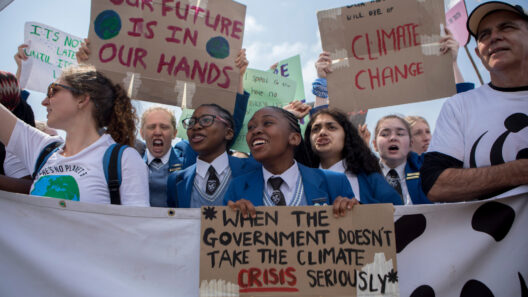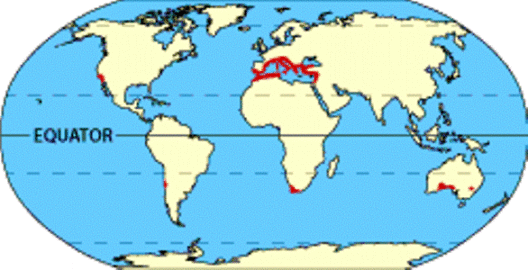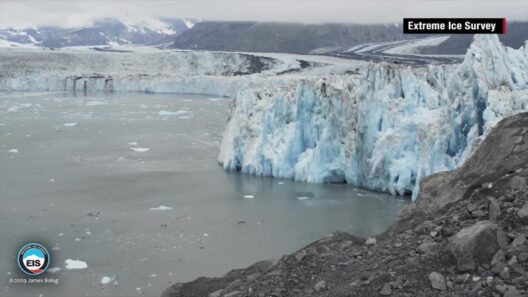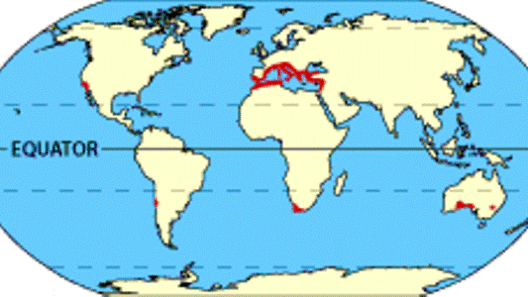In the realm of scientific inquiry and theological scrutiny, the intersection of faith and empirical evidence presents a fascinating landscape. One particularly provocative query arises: Do Christian Scientists believe in global warming? This question not only engages the intellect but also beckons a deeper examination of the confluence between spiritual beliefs and pressing environmental challenges.
To frame this discussion, it is vital to elucidate who Christian Scientists are. The Church of Christ, Scientist, traditionally referred to as Christian Science, is a religious movement founded in the late 19th century by Mary Baker Eddy. This organization champions the belief that spirituality and divine principles can lead to the healing of physical ailments, rather than affirming a literal interpretation of the Bible. In this context, one must ponder the implications of their worldview on contemporary issues, such as climate change.
Global warming, prescribed as a result of anthropogenic activities, has ushered in significant discourse about our planet’s climatic future. It is predicated on the scientific consensus that human actions—emission of greenhouse gases, deforestation, and industrial pollution—are substantially altering the Earth’s atmosphere. Enter the Christian Scientist community, a group reputed for its unique approach to science and spirituality. How does this ideology intersect with the empirical data surrounding climate change?
In addressing this conundrum, a playful yet profound question arises: Can faith heal our climate crisis? Numerous adherents to Christian Science might argue that the solution lies not in acknowledging the scientifically rooted concerns about global warming, but rather in embracing a spiritual perspective that transcends material limitations. They may assert that through prayer and unwavering faith, human beings can influence their natural surroundings and mitigate adverse environmental effects. Such a view poses a challenge to the tangible nature of climate science, potentially dismissing the necessity for climate action based on physical evidence.
However, the increasing severity of climate-related phenomena—rising temperatures, erratic weather patterns, and devastating natural disasters—compels a rational evaluation of faith in conjunction with factual realities. Many individuals, even within the Christian Scientist milieu, recognize that the causal nexus of global warming is palpable and needs urgent attention. This acknowledgment often leads to a dichotomy within the community, where some espouse a belief in the tenets of climate science while others remain steadfast in their spiritual-centric worldview.
Christian Scientists are not monolithic in thought. There exists a spectrum of beliefs within the community regarding environmental stewardship, with some members actively championing sustainability initiatives and advocating for policies aimed at combatting climate change. They may perceive caring for the Earth as an expression of their divine mandate, recognizing stewardship as an integral aspect of their faith. This perspective aligns with scriptural teachings that urge humanity to be caretakers of creation, thus creating a bridge between faith and environmental responsibility.
Moreover, the role of community within Christian Science provides a unique platform for environmental activism. By fostering a collective spiritual engagement, individuals can galvanize action towards practical solutions, embedding sustainability into their communal life. Initiatives such as tree planting, energy conservation campaigns, and educational programs about environmental issues can emanate from within their congregations, seamlessly blending faith-based motives with environmental exigencies.
As Christian Scientists explore the compatibility of their beliefs with global warming, theological interpretations may come into play. They might contend with questions about divine creation and humanity’s role within it. If God is the ultimate creator, how do human-induced changes to the climate fit into that narrative? Some may see climate change not merely as a scientific phenomenon but as a moral and ethical challenge that requires introspection and action. Such contemplation brings forth the notion of responsibility—not just to the environment, but to future generations who will inherit the consequences of today’s actions.
Conversely, a segment of the community may continue to maintain skepticism regarding the anthropogenic causes of climate change, perhaps drawing on a belief in divine providence to justify inaction. This perspective can foster a reliance on faith without substantive engagement with the empirical data available. The challenge, therefore, lies in bridging these ideological divides—encouraging dialogue that respects both spiritual beliefs and the overwhelming scientific consensus regarding global warming.
In conclusion, the question of whether Christian Scientists believe in global warming opens a debate rich with complexity and nuance. While there exists a propensity within parts of the Christian Science community to prioritize spiritual healing over empirical evidence, an increasing awareness of environmental degradation has spurred some members to reconsider their stance. The interplay of faith and facts within this dialogue underscores the necessity for a holistic approach to confronting climate change. By marrying spiritual principles with scientific understanding, there lies the potential for transformative action—one that not only addresses the climate crisis but also embodies a deeper commitment to stewardship of the Earth, reflecting the intricate relationship between humanity, faith, and the environment.








